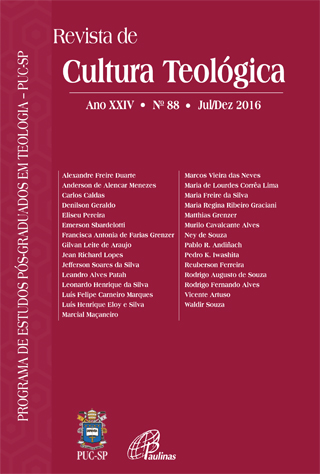Analysis of the literary form of Matthew 20,20-28 according to Klaus Berger’s theory
DOI:
https://doi.org/10.19176/rct.i88.30932Keywords:
Literary, Genre, Literary form, Symbuleutic, Epideictic, DicanicAbstract
This article presents an analysis of the literary genres found in Mt 20,20-28, which narrates the mother of Zebedee’s sons’ request and Jesus’ answer about how to serve. Klaus Berger’s theoretical references in As formas literárias do Novo Testamento (Loyola, 1998) will be applied. With the application of formal analysis, the pericope is classified as a comprehensive genre which contains symbuleutic, epideictic and dicanic text features. In a diagram other subgenre will be identified, which belong to lower categories in different levels and that are seen combined in the periscope. The communicative theory of genre prioritizes the relationship between author/reader and stresses the importance of the vital environment as found in the M.Dibelius and R.Bultmann’s classical thesis of literary genre. Thus the signals and forms used in the text produce the expected effect in the listeners/readers. Would they remain in the rulers of the world’s model or adhere to Jesus’s model? Would they reproduce the ruling or the service rationality? The arguments classified as symbuleutic in Mt 20,26 aim to modify the judging and making decisions assumptions used by the listeners. The criterion will not be the domination power, but the service instead, which results in equal relationships in Matthew’s community. Whoever wants to become great, should serve first; he should not be the first, but the last.Downloads
Published
2016-12-26
Issue
Section
Artigos





